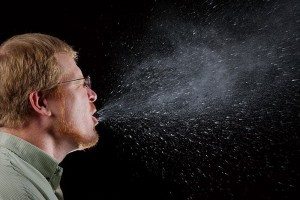 Every year when spring rolls around, I can count on one thing – I’ll be sneezing, wheezing, and hacking for at least 2 weeks.
Every year when spring rolls around, I can count on one thing – I’ll be sneezing, wheezing, and hacking for at least 2 weeks.
My seasonal allergies were confirmed when I was 14 – that’s when the doctor told me I suffer from springtime rhinitis – spring allergies, essentially (it was sort of hard for me not to envision a rhinoceros when the doc diagnosed me with “rhinitis”).
Every year since then, I’ve been loading up on the nasal sprays and Kleenex. Not that I can really cure myself of a seasonal allergy, but I might as well do the best I can to cope with it, right?
As my allergies come and go each year, I’ve been trying to perfect how I handle them. While everyone is unique and will need a personalized strategy for coping with their seasonal allergies, I have devised a few strategies of my own and hope you find them helpful.
Though I’m not a medical professional, I have tried each of these tips out and have personally experienced success with each of them. Still, be sure to consult your doctor before trying any tips out to make sure that they won’t conflict with any of your medications or other health needs.
#1 – Keep Your Home Windows Closed
As much as I absolutely LOVE introducing fresh air into my home, outdoor air (well, pollen, really) is the bane of my nose’s existence during the spring. So, unfortunately, I have to sacrifice enjoying refreshing spring air in my home during the months of March and April.
The benefit, of course, is that I can dedicate more time to spring cleaning rather than reaching for Kleenex.
#2 – Change Your Air Conditioning Filter On A Regular Basis
I buy HEPA air conditioning filters for my home during the spring. While this comes at an additional cost over the regular air filters, I have noticed a perceptible improvement in my springtime allergies when using the HEPA air filters.
The HEPA filters are more efficient at trapping pollen and other allergens floating around in my home, and will prevent them from being circulated back through the AC registers, helping to keep my indoor air a little cleaner.
#3 – Minimize Your Outdoor Time
I’m an outdoor guy at heart, so I really hate having to do this during the spring. However, I have noticed that my seasonal allergies are much less intense on the days that I stay mainly indoors.
This may mean having to rearrange your errands so you can do them in one fell swoop, or perhaps having a family member or friend help you by handling such tasks. Mowing the grass when pollen counts are down can help you keep the lawn maintained without forcing you to suffer too much.
#4 – Stay Inside When Allergens Are Most Prevalent
For me, pollen is my biggest natural nemesis, and it is usually at its highest levels in the early and mid-morning. So, I will try to move my outdoor activities to later in the day whenever possible.
#5 – Eliminate What’s Ailing You
Guess what I’m allergic to? Oak pollen.
Guess what sits in my yard? An oak tree.
Now, I love how graceful oak trees look, but because of my pollen allergy, I wouldn’t have them in my yard if I had my choice. However, I rent my property (where I have lived since I was a young kid), so I can’t cut the tree down.
Though, when the time comes that I buy a house, I’m only going to have plants in my landscape that won’t exacerbate my allergies. Here are the 10 worst plants for your allergies.
If you’re inclined to (and legally can), you should consider removing plants that may be the culprit behind your seasonal allergies.




